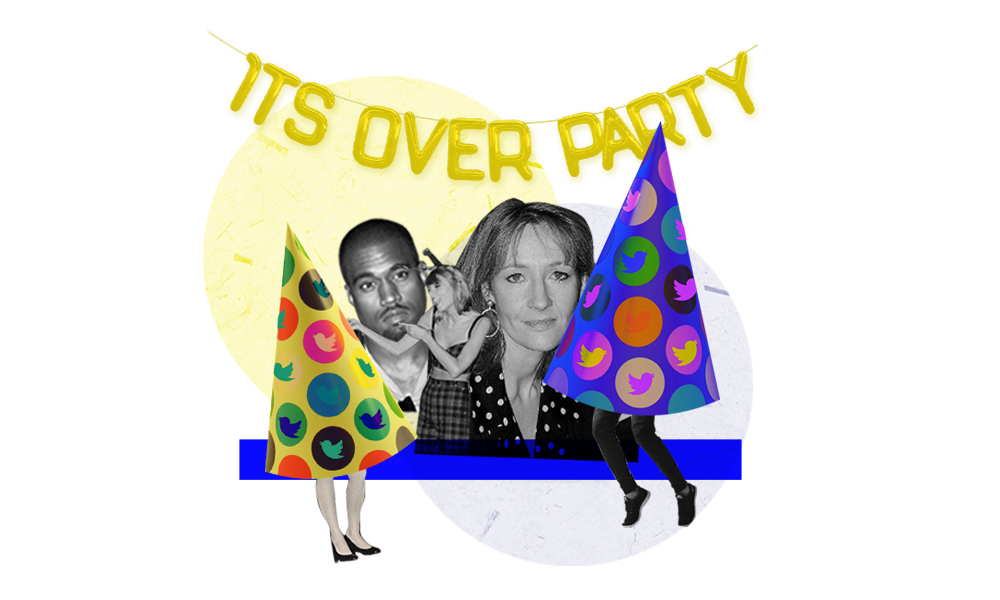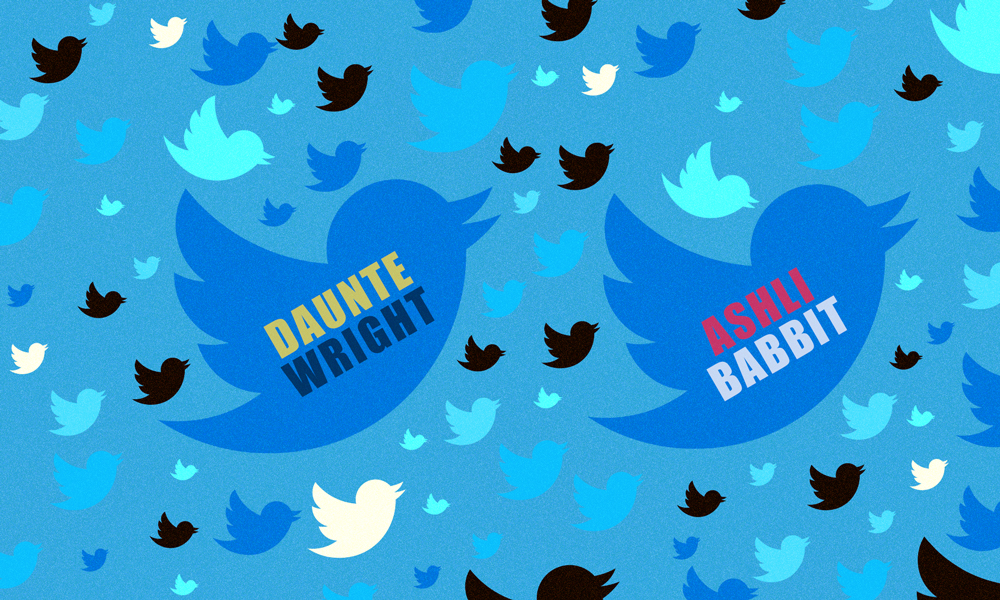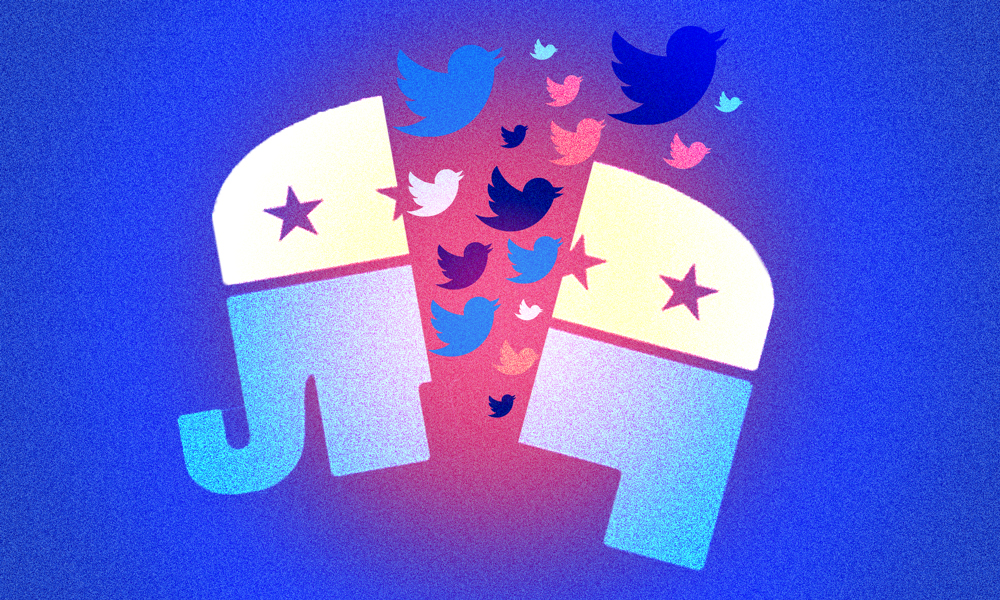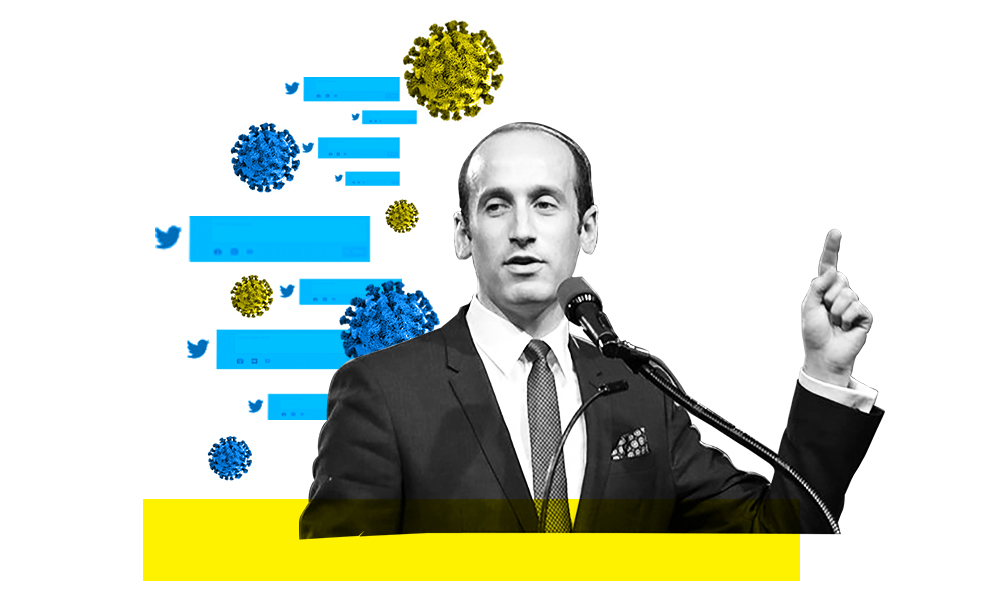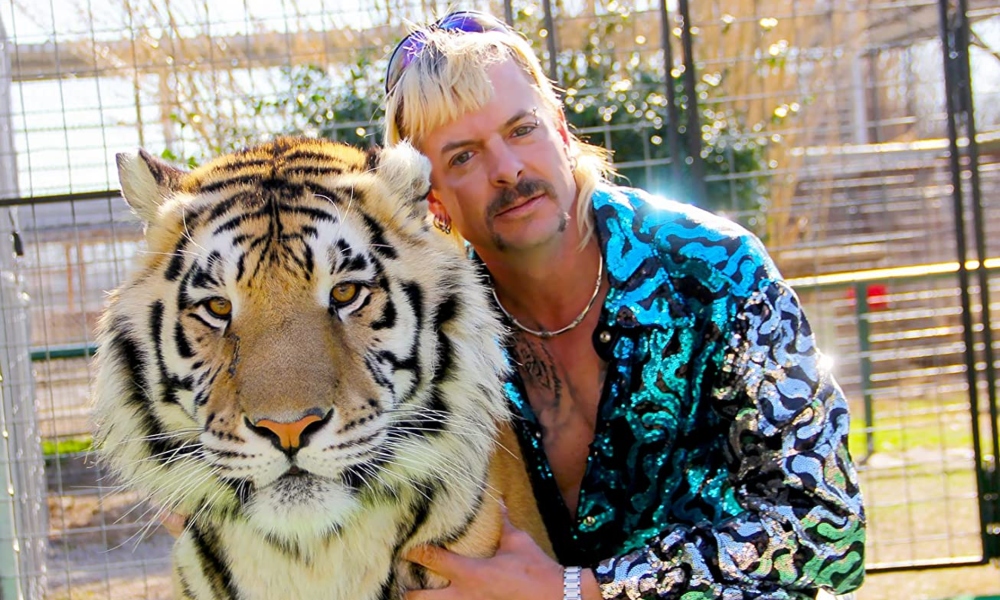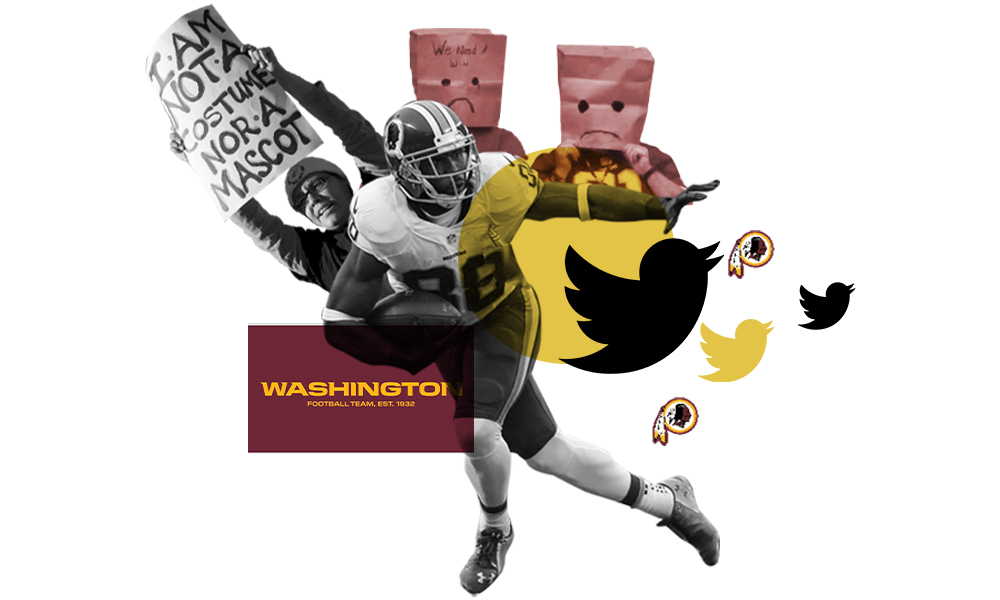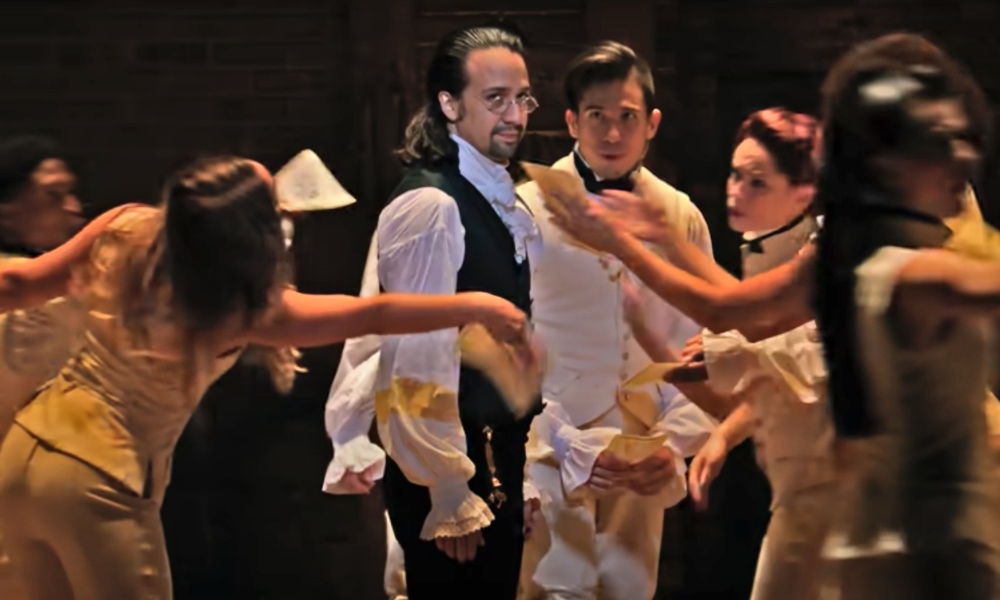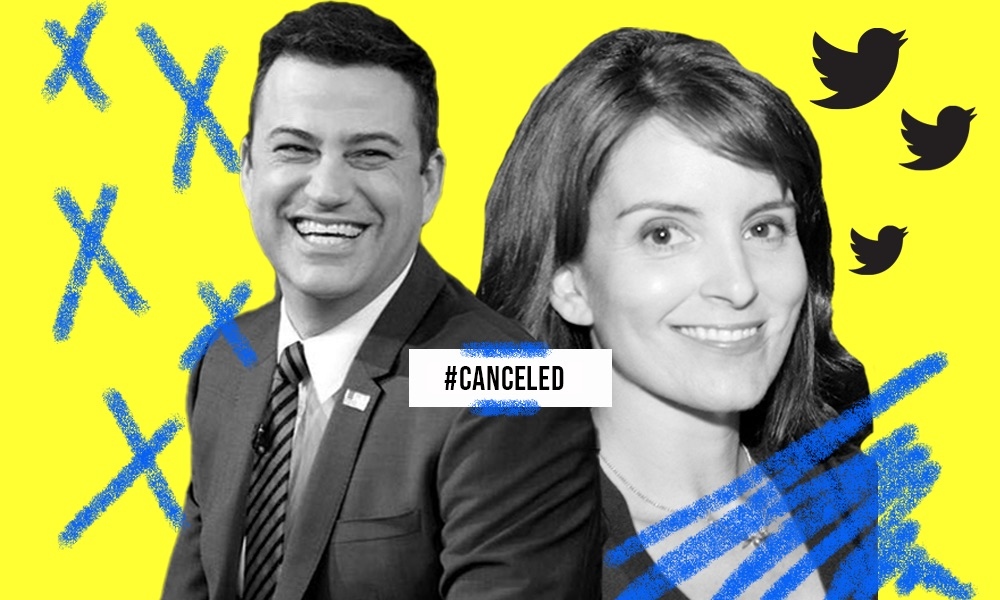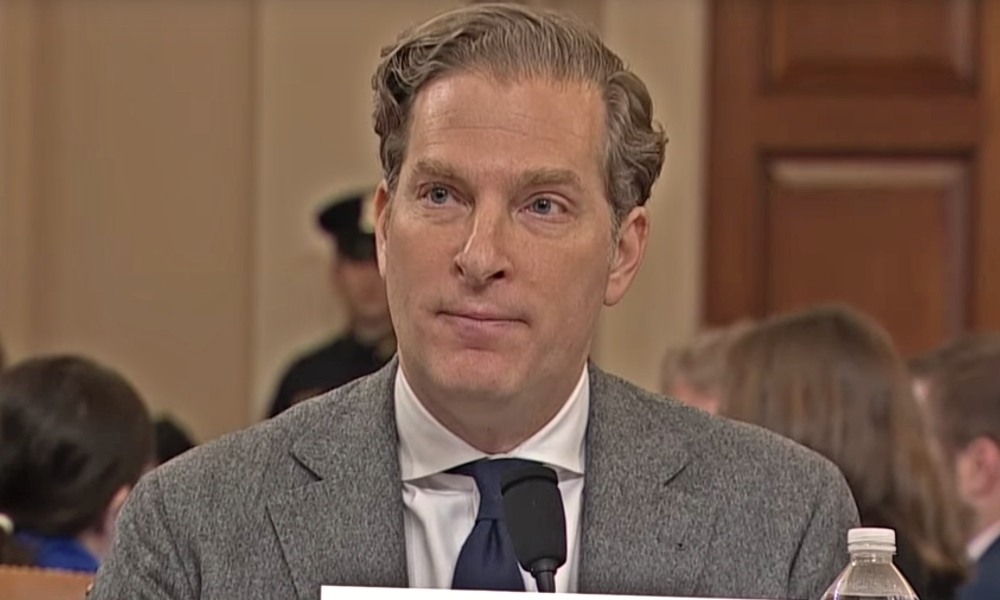On October 23, 2015, @PerryNostaliga tweeted:
#TaylorSwiftIsOverParty 😊😊😊😊👏🏻
— 🎪 S U S A N 🎪 (@PerrysNostalgia) October 23, 2015
At the time, the tweet only got 4 retweets and 11 likes. But, according to Known Your Meme, an online meme database, this was the first usage of the now-viral #IsOverParty hashtag.
Anyone who’s spent anytime on Twitter has probably seen some form of #IsOverParty trending. In its most common usage, IsOverParty is written after the name of someone or something that is “canceled.”
The trend officially picked up in July of 2016, when #TaylorSwiftIsOverParty began trending in response to the revelation that Swift had known that Kanye West had written about her in one of his songs, “Famous,” referencing the time he interrupted her acceptance speech at the 2009 Video Music Awards. In that case, tweeters were criticizing Swift for purporting beef between her and West, assuming that her knowledge of the lyrics indicated that there were no hard feelings.
It’s been a long time coming #kimexposedtaylorparty #taylorswiftisoverparty https://t.co/dfXYOk6ii8
— Brennan McKissick (@brennanphotoguy) July 18, 2016
Band-AIDS don’t fix bullet holes. #KimExposedTaylorParty #IStandWithKimye #BadBlood #TaylorSwiftIsOverParty
— Stephanie Ulloa (@queen__stephani) July 18, 2016
Taylor leaving her house tomorrow #KimExposedTaylorParty #TaylorSwiftIsOverParty pic.twitter.com/YRXSUUnc4E
— ️ (@HlSPANICHOES) July 18, 2016
The only thing Taylor is a victim of is huge fame and wealth. Sorry, but I can’t really sympathize #TaylorSwiftIsOverParty
— Cassaundra ☾ (@Saw_Knee) July 19, 2016
In the four years since, #IsOverParty has been used countless times as an indicator that someone has done something the Twitter public deems reprehensible. Kanye West got his comeuppance more than once, when #KanyeWestIsOverParty trended every year between 2016 and 2019.
Twitter has seen a spike in the trend since the coronavirus pandemic began, aligning with the general increase in celebrity and politician “cancelations.” #JimmyKimmelIsOverParty and #TinaFeyIsOverParty were used in late June to criticize both TV personalities for usages of blackface on their TV shows.
I love it when Hollywood eats itself 😂 #jimmykimmelisoverparty #jimmyfallonisoverpartyhttps://t.co/fKByr7JBVu
— Don Draper (@DonDrap76431282) June 22, 2020
Nope. Too late. You’re #Cancelled #TinaFeyIsOverParty https://t.co/0nsfhFVsyZ
— Stevie Quick (@SecondBestQuick) June 23, 2020
And #JKRowlingIsOverParty has been trending on and off for the better part of a year, as tweeters attack the Harry Potter author for her comments regarding trans women.
I could easily say I joined Twitter only to inform you that you’re canceled also you should stay out of social media this is no place for your transphobic shit #JKRowlingiscanceled
— alelessie (@gitalfaro) February 22, 2020
Generally, if #IsOverParty is trending, clicking on it will pull up tweets that explain what the person has done to deserve such a party. Recently, however, many on Twitter have used the hashtag to ask why #IsOverParty is trending in the first place, flooding Twitter with tweets of confusion, making it difficult to find the reasons behind the tweets.
When #chrisevansisoverparty is trending but so many people are tweeting about how they don’t know why it’s trending that no matter how far I scroll I can’t figure out why #chrisevansisoverparty is trending. pic.twitter.com/SQXjDwSP5J
— Lilly Gelman (@LillyHopeG) July 21, 2020
Some take advantage of the trend, and use the hashtag to bring more attention to tweets completely unrelated to the #IsOverParty. This further floods the Twitter streams, making #IsOverParty an increasingly befuddling trend.
Many react to #IsOverParty trends with jokes and memes, but the criticism behind the hashtag is real. It often starts as an attempt to reprimand a public figure for racist, homophobic or transphobic comments and other problematic behavior. But the spiteful tone is indicative of cancel culture, which many criticize as vindictive and voyeuristic with society reveling in the downfall of others.
But a smart tweeter will know that they can use the hashtag to fight back against the accusations. Using the #IsOverParty in a tweet groups it with the other posts that use the same hashtag. Tweeters who disagree with the “cancelation” or think there is room for a discussion can insert themselves by utilizing the hashtag. This way, everyone is invited to the #IsOverParty.

